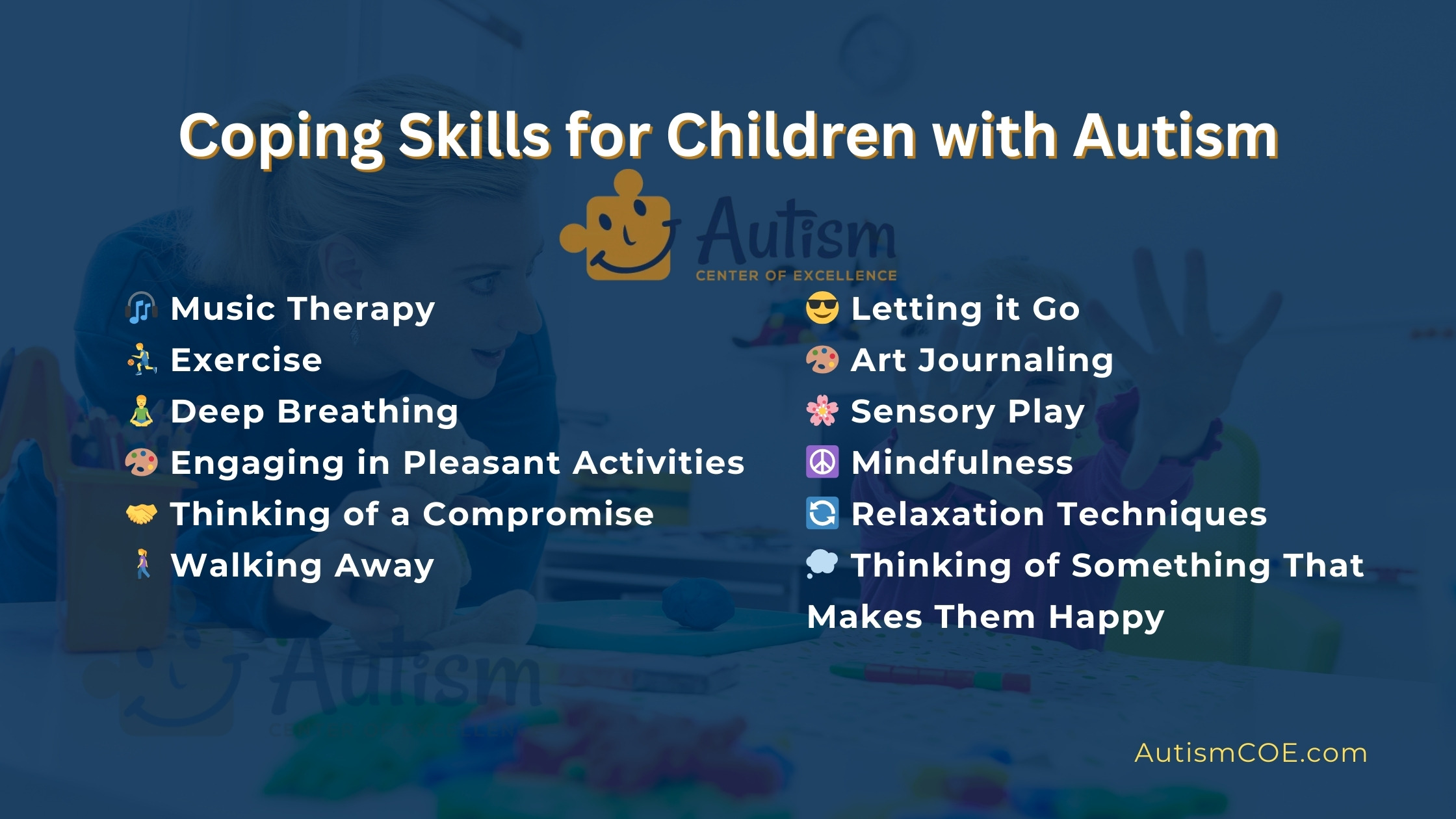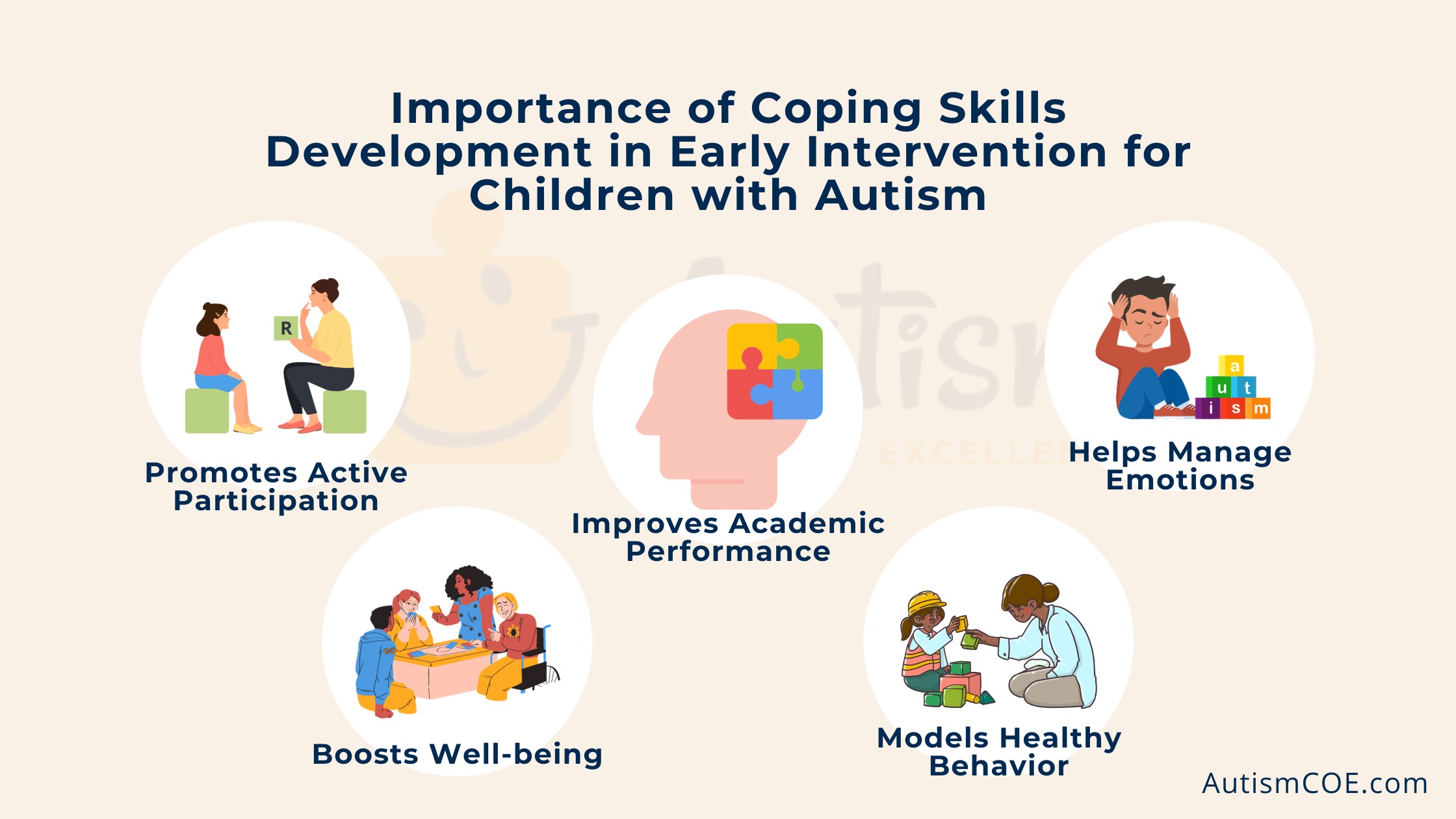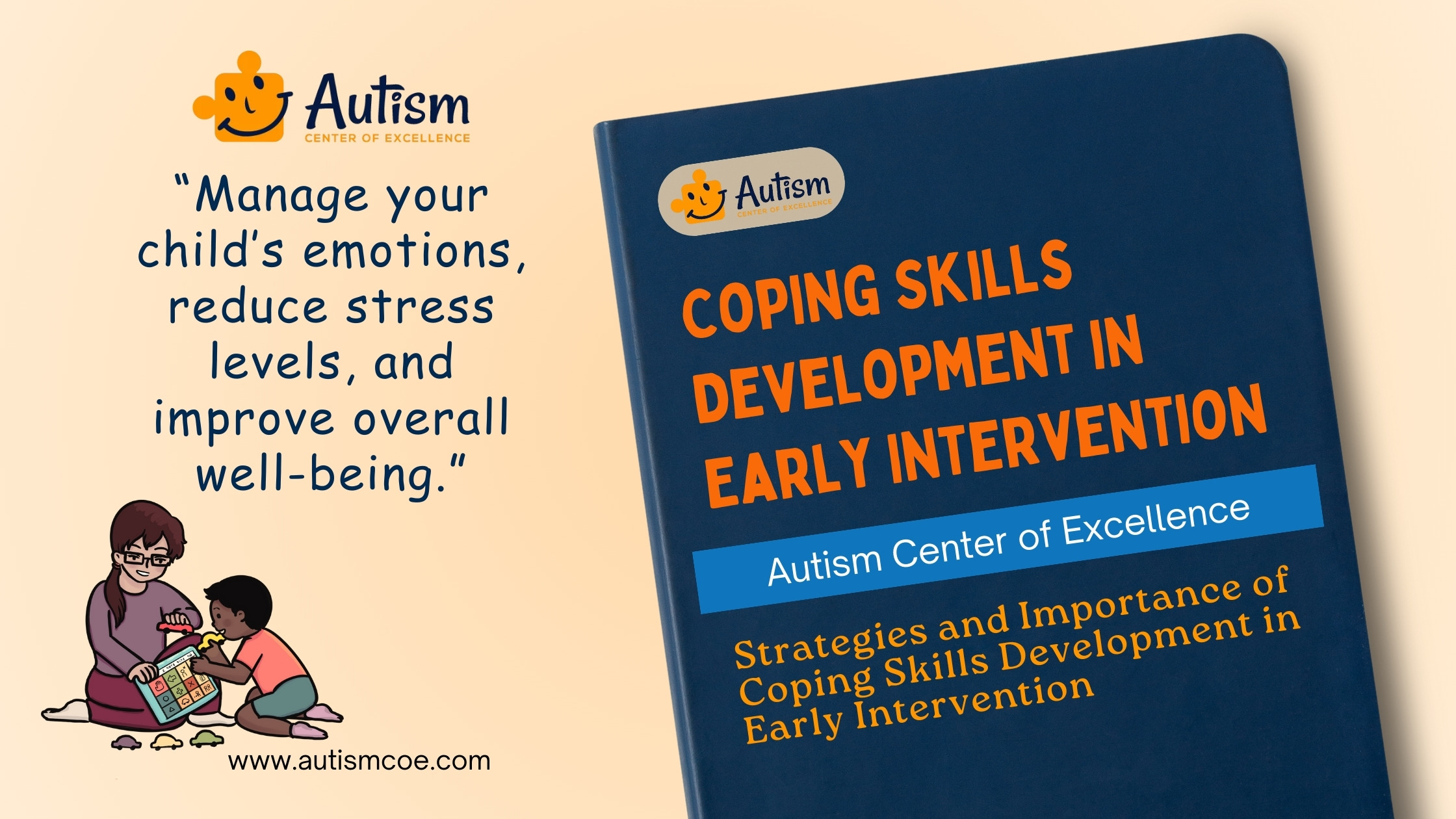One out of 100 children is on the autism spectrum, which means it is not rare and demands to be understood and offered effective intervention strategies. People with autism experience a neurological disorder that includes problems with communication, language, and social interactions. These problems are also difficult for children with autism to cope with in everyday life situations, and as such, they become more stressed and anxious. Nevertheless, promoting the growth of adaptive coping skills from an early age can significantly improve the quality of life for these children.
What Causes Poor Coping Skills?
Children with autism frequently possess poor coping skills due to their underlying neurological differences. Their unique brain structure and how their brain operates can result in difficulties in processing information, interpreting social signals, and controlling their emotions. Such challenges can prevent them from dealing with everyday situations and lead to a lot of tension and anxiety.
All these issues are compounded by the unusual sensory experiences that are linked with autism. Most children suffering from autism are hypersensitive to sensory stimuli including loud noises or bright lights which cause them to feel overwhelmed and panicked. These children will, however, not be able to develop some coping mechanisms leading to distress and behavioral problems. Consequently, learning coping strategies is an integral part of Early Intervention in children with autism.

What are Coping Skills for Children on the Spectrum?
Children with Autism Spectrum Disorders (ASD) encounter special issues in controlling feelings, processing sensory input, and dealing with social circumstances. Nevertheless, by learning coping abilities from an early age, these children can greatly enhance their ability to deal with these situations. Here are some of the key coping skills for children with autism that can be beneficial:
🎧 Music Therapy
Music is a strong instrument that can assist children with autism to demonstrate their feelings and regulate their emotions. It can also function as an anxiety-controlling exercise.
⛹️♂️ Exercise
Physical activity regularly can decrease the level of anxiety, and improve mood and well-being generally. This may require organized exercises such as team sports or independent activities like swimming or cycling.
🧘♂️ Deep Breathing
Children with autism can benefit from deep breathing exercises that will help them to control their stress levels and remain calm during intense situations.
🎨 Engaging in Pleasant Activities
Participating in enjoyable activities for the child can act as a good coping mechanism. This is for instance drawing, reading, or playing with the favorite toy.
🤝 Thinking of a Compromise
A verbal prompt to children diagnosed with autism to think of a compromise will steer them toward more successful social situations.
🚶♀️ Walking Away
Knowing when to leave in a stressful situation is a useful skill for children with autism.
😎 Letting it Go
Children with autism should be taught to release what is beyond their control which will help in the reduction of the feeling of anxiety and frustration.
💭 Thinking of Something That Makes Them Happy
recall something that makes them happy helps when they are having a rough time.
🎨 Art Journaling
Art journaling can offer a way for children who have autism to use creativity to express their feelings through drawings, paintings, or collages.
🌸 Sensory Play
Sensory Play is able to be very helpful to autistic children with sensory sensitivities since it presents a relaxing and therapeutic experience.
☮️ Mindfulness
Children with autism can benefit from mindfulness to stay in the present and avoid anxiety and overwhelm.
🔄 Relaxation Techniques
Relaxation techniques like progressive muscle relaxation or guided imagery can teach children with autism how to reduce stress and maintain a state of calm.
“The development of coping skills that occur during early intervention is very important for the well-being, academic performance, social functioning, and emotional intelligence of the children, who in particular, have an autism spectrum disorder. playful activities during the learning process will make it interesting and fun, while adults’ demonstration of healthy coping behaviors provides a practical guide for the children.”
Join Our Weekly Newsletters!
Subscribe now to stay updated with our latest email updates.

Importance of Coping Skills Development in Early Intervention
Early intervention is vital in enabling children with autism to gain the necessary coping skills. By reviewing the scientific basis of educational approaches, programs, and strategies, educators will be able to form individual plans for each child to acquire these skills.
1️⃣ Boosts Well-being: Coping skills help children in controlling their reactions and behaviors, which leads to wellness.
2️⃣ Improves Academic Performance and Social Functioning: They are related to better academic results and better social interactions.
3️⃣ Fosters Resilience and Emotional Intelligence: Teaching them coping skills early, we are Fostering Resilience and Emotional Intelligence in children which they will have for the rest of their lives.
4️⃣ Promotes Active Participation through Play: Fun activities that help children learn these skills make the process enjoyable and enjoyable, so kids get involved and learn.
5️⃣ Models Healthy Behavior: Adults are able to show healthy coping strategies, leading children through tough times.
6️⃣ Helps Manage Emotions: The ability to control emotions under challenging conditions is an important coping skill.
7️⃣ Reduces Stress: Coping and self-soothing strategies are also powerful means for children to deal with the effects of stress and strong emotions.
ABA Therapy and Autism Coping Skills
The therapy known as Applied Behavior Analysis (ABA) is a very popular treatment among children with autism. Positive reinforcement is used to promote wanted behavior and to minimize undesirable or disruptive behaviors. The development of coping skills is one of the most important areas where ABA Therapy can be absolutely effective.
Coping skills are tactics that permit an individual to deal with stress, hardship, and other difficult situations. These skills can be systematically taught and reinforced in the framework of ABA therapy. For instance, to teach a child how to act in a stressful situation, therapists may use role-playing, social stories, or direct instruction. Afterward, positive reinforcement would be used to promote the use of these new abilities. In the long run, this may enable children with autism to control their feelings, to deal with social incidents, and to cope with changes in routine better.
Frequently Asked Questions & Answer
What are Coping Skills in ABA?
In Applied Behavior Analysis (ABA), coping skills are methods that are taught to individuals with autism and other types of people, which help them deal with stress, challenges, and adversity. These skills can be calming techniques, social skills, problem-solving strategies, and techniques for regulating emotions.
How to Teach Coping Skills to a Child with Autism?
Coping skill instruction for a child with autism frequently includes visual aids, role-play, social stories, and direct instruction. Positive reinforcement is employed in promoting the utilization of these new skills. Such a systematic approach eventually teaches the child how to control their emotions, to interact with other people, and to cope with deviations from their daily routine.
What are 3 Treatments that Help Cope with Autism?
Three treatments that can help cope with autism include:
- Applied Behavior Analysis (ABA): This therapy uses positive reinforcement to encourage desired behaviors and reduce harmful ones.
- Occupational Therapy: This helps children develop the skills for the job of living, including fine motor skills and daily living skills.
- Speech-Language Therapy: This addresses challenges with language and communication.
What are Sensory Coping Skills?
Sensory coping skills are techniques that are designed to assist individuals, most especially those with sensory processing difficulties, to cope with the onslaught of sensory input. Such activities include deep-pressure activities which may include bear hugs or using weighted blankets, listening to soothing music, or even engaging in fun-filled physical exercises like jumping on a trampoline.
Conclusion
Coping skills development in Early Intervention for Toddlers with Autism is important. It can assist them to control their emotions, lessen their stress levels, and enhance their general health. The types of coping skills taught will differ from child to child depending on his or her specific needs and abilities. Understanding what leads to poor coping skills and then putting into place effective strategies, we can make a big difference in children with autism.
The Autism Center of Excellence dwells on these strategies that help children with autism to develop appropriate coping skills. In this way, they consider that early intervention and supportive therapies bring up far-reaching improvements in the lives of people on the autism spectrum.
Please Note: The content of this blog is for informational purposes only and should not be considered a substitute for professional medical advice, diagnosis, or treatment. Consult a qualified healthcare professional for personalized guidance tailored to your specific situation.

Bhavika Bhasin
Bhavika Bhasin is the Research and Marketing officer at AutismCOE. She works with children and adults with ASD. Her clinical research includes evaluating various available autism screening and diagnosis methods and their efficacy. She is currently developing a novel screening exam that is indicated to be more accurate than the existing available exams. She is also writes articles papers for various publications.


